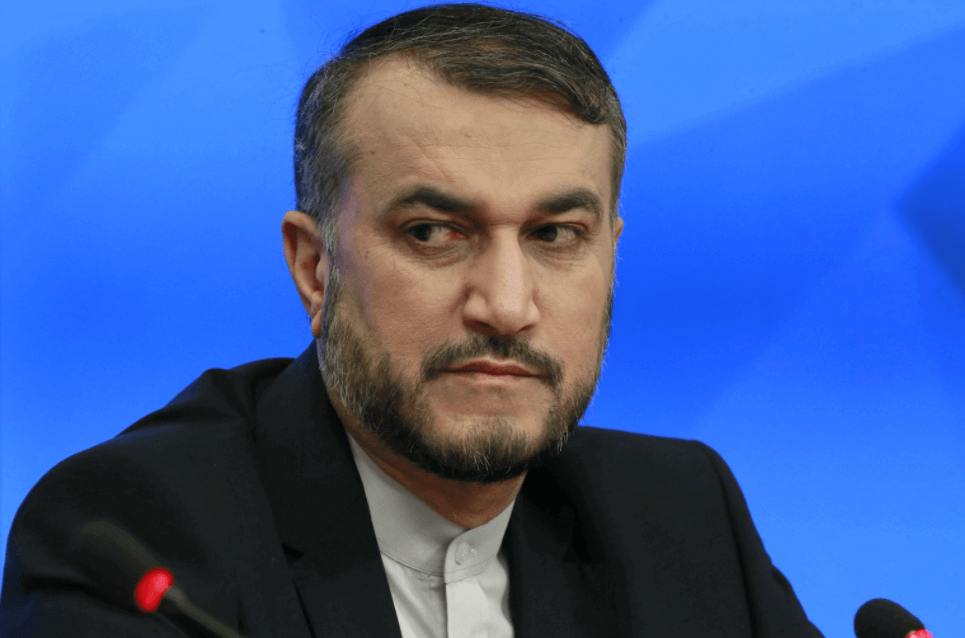Iran on Wednesday welcomed recent efforts aimed at normalising Arab-Syrian ties, referring to the recent visit of Syrian President Bashar al-Assad to the United Arab Emirates (UAE).
Iranian Foreign Minister (FM) Hossein Amir Abdollahian said during a meeting with Assad in Damascus that improving relations between Arab countries and Syria was key to preserving regional peace and security. He stressed that Tehran opposes war in the Middle East and “supports resolution of disputes through dialogue and political means.”
الرئيس الأسد يستقبل وزير الخارجية الإيراني حسين أمير عبد اللهيان والوفد المرافق. pic.twitter.com/Uf1cs5qv1l
— Syrian Presidency (@Presidency_Sy) March 23, 2022
Last week, Assad visited the UAE for the first time since 2011 and met with the leaders Abu Dhabi and Dubai in a bid to improve ties with the Gulf country. The UAE cut off ties with Syria following the 2011 uprising. However, more recently, the UAE and other Arab countries—including Saudi Arabia, Lebanon, Bahrain, and Egypt—have been seeking to restore ties with Syria amid their rivalry with Iran.
Abdollahian said that Iran is ready to negotiate with Gulf countries over the conflict in Yemen. “Iran wants the Yemen crisis to be resolved through talks between Yemeni factions and it believes that a change in the behaviour of some regional countries can pave the way for finding a solution to the Yemen crisis,” Iran’s top diplomat told Assad.
The seven-year-long war in Yemen began in 2014, when the Houthis ousted the internationally recognised government led by President Abdurabbuh Mansur Hadi. In 2015, a Saudi-led coalition launched a major offensive in Yemen to restore the Hadi government by conducting airstrikes on Houthi-controlled areas. The Gulf coalition has also blamed Iran for arming the Houthis, who have been launching missile and drone attacks against Saudi Arabia and the UAE.
Iranian FM @Amirabdolahian met with #Syrian President Bashar al-Assad and held talks over bilateral cooperation as well as regional and international developments. pic.twitter.com/rFr0SlxERr
— Iran Foreign Ministry 🇮🇷 (@IRIMFA_EN) March 24, 2022
In addition, Abdollahian claimed that Iran and the P5+1 (the United States, the United Kingdom, France, Russia, China, and Germany) are “close” to reaching a nuclear deal after months of intense negotiations in Vienna. However, he blamed the US for stalling the talks and said that despite claiming that it was interested in reviving the 2015 nuclear deal, “the Americans must show their goodwill in action.”
Iran has repeatedly stated that it will only agree to a nuclear deal if the US promises to remove all sanctions, including non-nuclear, imposed on Iran. Lawmakers have also demanded that the US should guarantee that it will not abandon the deal once signed and allow Iran to receive money from all exports.
The West has expressed concerns about recent steps taken by Iran to accelerate its nuclear programme and urged Tehran not to violate the terms of the 2015 deal. However, earlier this month, the International Atomic Energy Agency (IAEA) reported that Iran has continued to increase its stockpile of highly enriched uranium amid ongoing talks in Vienna. In the report, the atomic energy watchdog claimed that Iran’s total stockpile of enriched uranium has increased by almost 15 times the level set by the 2015 deal.
Furthermore, the report states that Iran has around 33.2 kilogrammes of uranium enriched up to 60% fissile purity, an increase of 15.5 kilogrammes since the last report. A senior IAEA official told Reuters that this is around three-quarters of the amount needed to produce one nuclear weapon.
Last year, the IAEA reported that Iran has begun enriching uranium with highly advanced centrifuges at its Fordow nuclear power plant. The nuclear watchdog said that Tehran has started the process of enriching uranium to 20% purity using a cluster of 166 advanced IR-6 machines at Fordow. As per the 2015 deal, Iran can only enrich uranium up to 3.67% till 2030.
However, Syria has supported Iran’s position in the nuclear talks. Assad told Abdollahian that Iran’s position in the Vienna talks is “wise and sound” and stressed that Damascus will continue supporting Tehran in this regard.
Tehran is a strong ally of the Syrian President and has sent hundreds of Iranian fighters as well as provided weapons and training to foreign fighters to help the Syrian regime fight the rebels seeking to oust Assad. With the help of the Russian airforce, the Iran-backed fighters and the Syrian army have been successful in resonsolidating Assad’s leadership in Syria.

